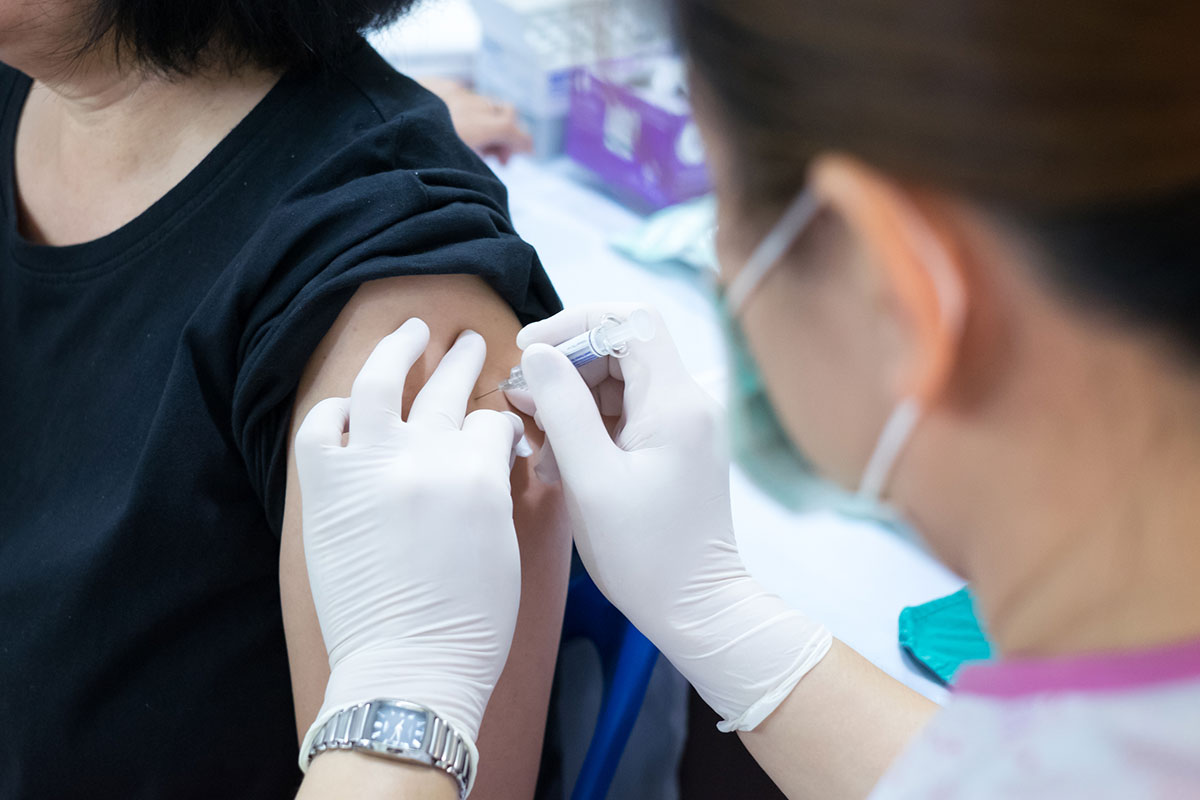<< Back
COVID-19 Variants From United Kingdom Reach State: How Long Can Vaccine Stop Them?

January 08, 2021
As a pair of more contagious COVID-19 variants pushed Great Britain into its third lockdown, researchers affirm that current vaccines indeed offer protection against them.
Both variations share a mutation called N501Y, a slight alteration in the spike protein coating the virus that scientists believe allow them to spread more easily. Vaccines developed by Pfizer and Moderna, currently being administered nationwide, are designed to target and fight the spike protein.
In a preliminary study, Pfizer enlisted academic researchers from the University of Texas to examine blood samples from 20 people who received its vaccine. They found that the vaccine recipients’ bodies produced antibodies that fought off the virus.
The news aligned with predictions from Keith Grant, APRN, Senior System Director of Infection Prevention at Hartford HealthCare when the first variation of the COVID-19 virus surfaced last month in England. The state confirmed two cases Jan 7 of a COVID-19 variant first identified in Great Britain. The variant was found two people, ages 15 to 25, who live in New Haven County. One returned recently from Ireland. The other had traveled to New York State.
“We’re still at the early stages of gathering data, but we believe the vast majority of people getting the vaccine would be covered (against) this,” Grant said.
Virus like COVID-19 change constantly. Like the seasonal flu virus, which requires a different vaccine each year to keep it controlled, Grant said mutations of the coronavirus were anticipated. As vaccine is introduced to the population, it triggers viruses to mutate further in an attempt to stay alive.
The Pfizer study revealed that its vaccine is potent against 15 possible mutations to the COVID-19 virus. Currently, however, one mutation in the South African strain of the virus, called E484K, has not been tested. Pfizer officials plan to test it next.
If the virus mutates enough, similar to the changes made in seasonal flu, Pfizer officials have said it would be easy to tweak its vaccine accordingly. Maintaining protection could require annual booster shots, according to Dr. Michelle McDade, associate chief of The Hospital of Central Connecticut Emergency Department.
“The vaccine for COVID-19 is predicted to create immunity that lasts one to two years if the full two doses of the vaccine are administered,” she said. “Similar to other vaccines, such as the flu vaccine, there may be a need for additional booster shots. Experts estimate boosters may be required every year.”